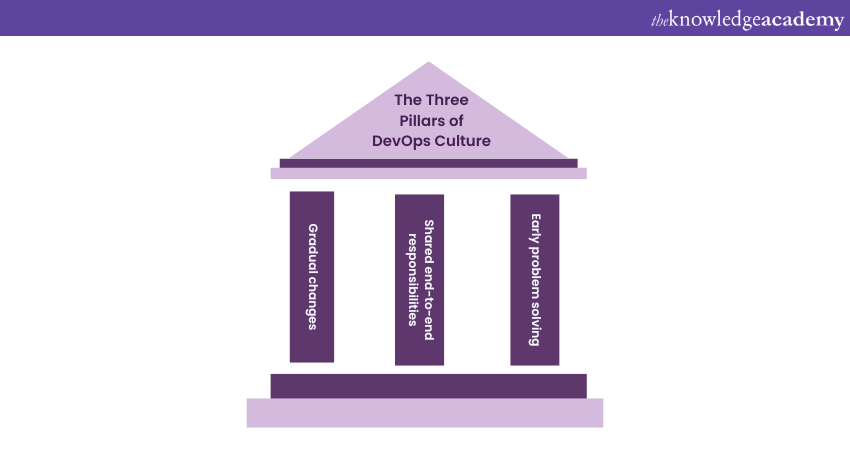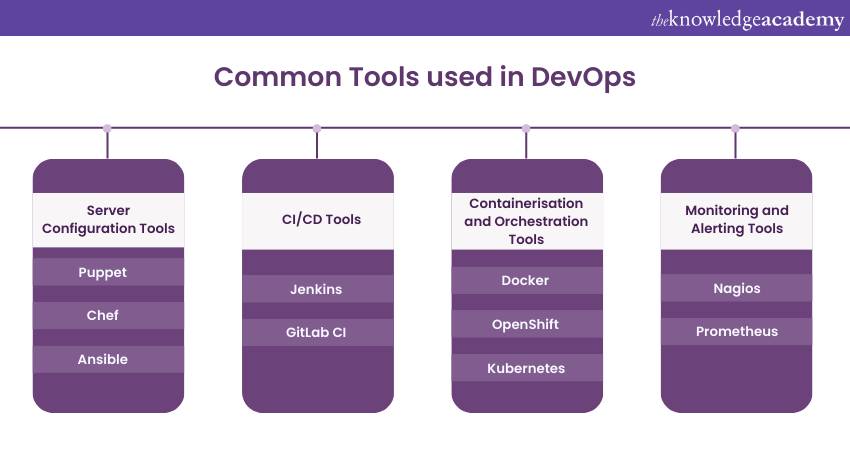We may not have the course you’re looking for. If you enquire or give us a call on +41 315281584 and speak to our training experts, we may still be able to help with your training requirements.
Training Outcomes Within Your Budget!
We ensure quality, budget-alignment, and timely delivery by our expert instructors.

The introduction of automation has taken over the world by surprise. Almost all industries have engaged in deploying automation to streamline their business operations. But to achieve this task, individuals need to be proficient with DevOps Concepts and ensure an effective application of automation.
The DevOps cultural philosophy has provided many organisations with ease of scaling, reliably deploying and innovating automation for their customers. It is the reason why the DevOps market size is expected to reach £25 billion in 2028 in comparison to £6 billion in 2021, according to Global Market Insights.
Considering the importance of DevOps in the near future, potential techies must become entirely familiar with its concepts. Start your journey today! Read the blog to know about DevOps Concepts. Additionally, you can learn about DevOps tools and how they affect your business operations.
Table of Contents
1) What is a DevOps?
2) Principles of DevOps
3) DevOps practices
4) What are the tools used in DevOps?
5) Conclusion
What is DevOps?
Development and Operations, popularly known as DevOps, is an extension of Agile. It combines various philosophies, practices and tools to develop an organisation’s ability, assure quality, and effectively deploy and integrate operations. It highlights the importance of giving teams the power to make decisions, encouraging communication and cooperation between different teams, and using technology to automate processes. As a result, it assists in streamlining automation into a single processing unit.
What are the key concepts of DevOps model?
Higher speed, faster responsiveness to customer needs and a better working environment can only be achieved when quality products are released. But this is possible only when the professionals understand and apply advanced DevOps Concepts effectively. But what are these key concepts? How can they help in gaining a better understanding of the methodology? Let’s find out.
Principles of DevOps
The DevOps methodology functions on certain fundamental principles essential to develop integrated processes. These basic principles are CAMS, meaning, Culture, Automation, Measurement and Sharing. So, let’s go into the details and learn what these principles are:
Culture
The term culture symbolises an environment and mindset required to develop strong bonds among the Software Development and Infrastructure Operations teams. This principle further finds its foundation in three pillars, and those are:

Automation
It means automating as many development, testing, configuration and deployment procedures as possible. It is one of the vital principles of this methodology. It allows automation professionals and experts to avoid repetitive work and focus on improving the quality of work.
Measurement
Measurement means evaluating Key Performance Indicators (KPIs). To bring out the best in the development team and activities comprising DevOps flow, regularly checking the performance is one of the necessities of DevOps. Measuring the deficiency areas and improving upon them is one of the crucial tasks.
Sharing
The idea of sharing is to develop an environment of collaboration. It includes sharing feedback, discussing innovations, and brining transparency among the teams. Therefore, creating collective intelligence and eliminating constraints.
DevOps practices
The development process in DevOps includes a delivery cycle that further comprises of planning, development, testing, deployment, release, and monitoring. These practices are essential to break down the entire process into smaller chunks to develop quality products. So, let’s have a look at them in detail:
Planning to develop continuously
Planning involves setting high-level objectives using Agile Processes. In this manner, the processes get divided into iterations, increasing the amounts of releases. It also consists of pre-planning the iterations so that future processes could be more agile once ideas are tested on previous products.
Learn how Artificial Intelligence (AI) enables automated testing in DevOps. Register for our Artificial Intelligence (AI) For DevOps course now!
Infrastructure as a code
Infrastructure as a Code (IaC) is an Infrastructure Management approach that assists in smoothly and consistently delivering operations. It means using scripts to automatically set networks and Virtual Machines to configure despite their primary state.
Automated testing
Examining processes for quality is one of the essential practices in DevOps. Using tools like Selenium, Ranrex, and UTF can assist in bringing out the vulnerabilities in the product. It also involves detecting integration issues using Version Control System (VCS).
Effective deployment
Deployment of codes to run the product on the organisation’s server is another practice of this methodology. To effectively run the product, it is vital to deploy the code so that it doesn’t affect already running operations.
Microservices
It is an architectural approach adopted to create applications as a set of services that interact with each other but are configured independently. It allows the elimination of problems while maintaining the rest of the application functions. Thus, ensuring a high deployment rate and keeping the entire system stable while simultaneously fixing the issues separately.
Regular monitoring
Creating and maintaining proper documentation is important to make the testing process of organisation transparent. DevOps teams often produce various testing-related documents, such as:
a) Quality Management Plans (QMP)
b) Test summary reports
c) Test case specifications
d) Risk assessment reports
e) Regression test reports
These reports are usually made either at the start of testing or after the testing is done. Documents like Quality Management Plans (QMP) and Test Management Plans (TMP) give a detailed look at the testing that will be done. It includes all the parts of the features that are being tested. Test summary reports give you a detailed look at the test results.
What are the tools used in DevOps?
One of the primary objectives behind implementing DevOps is to improve the delivery cycle and integration process by automating activities. It is in line with faster product delivery to the end customer. But to achieve this automated product release, the Development Team requires specific tools.
The current DevOps tools cover almost all stages of continuous delivery, from integrating environments to containerisation and deployment. Although some processes are still automated with custom scripts, most DevOps Engineers use various other products.

Automated testing tools should make it simple to create and run test cases without requiring complicated setups. Discussed below are some of the popular software testing tools, including open-source and commercial tools, that are widely used by the organisation.
a) Selenium: It is an open-source tool that automate the testing of web application. It consists of a software that are suitable for various testing needs. Selenium scripting can be easily written in different programming languages.
b) JMeter: JMeter is a open-source, Java-based program that's used to check performance and load testing of the software. It can be used to test different kinds of protocol types.
c) Katalon Studio: It is considered one of the top automated testing tools and offers both free and paid versions. It's versatile and can be used for automating tests on websites, APIs, desktop applications, and mobile apps. It integrates well with various platforms.
d) SoapUI: It is an open-source tool that can test different types of APIs like REST, SOAP, and GraphQL. It has a user-friendly interface and works on various Operating Systems (OS).
Conclusion
A deep understanding of DevOps Concepts and DevOps skills can assist in streamlining automation processes effortlessly. This combination of culture, practices and tools to successfully deploy and integrate automated operations can do wonders for organisations across industries. Thus, one can say that the Future of DevOps is vivid.
Interested to learn essential skills and protect your assets? Sign up now for our Certified DevOps Security Professional (CDSOP) Course!
Frequently Asked Questions
Upcoming Programming & DevOps Resources Batches & Dates
Date
 Certified DevOps Professional (CDOP)
Certified DevOps Professional (CDOP)
Thu 30th Jan 2025
Thu 27th Mar 2025
Thu 29th May 2025
Thu 24th Jul 2025
Thu 25th Sep 2025
Thu 27th Nov 2025







 Top Rated Course
Top Rated Course



 If you wish to make any changes to your course, please
If you wish to make any changes to your course, please


